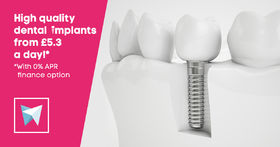The status of your mouth and therefore the problems that it may experience change over time; a small change in your diet, your location or your work, your personal habits or your at home oral routine can change the status of your teeth and can lead to some new and unwanted consequences. One of these is the accumulation of tartar.

What is tartar, and why is it on my teeth?
Tartar or calculus is a hard crumbly substance that is a by-product of bacterial life. It is essentially a hardened and calcified biofilm. Biofilm is the substance in which bacteria live and breed, it is the medium by which they stick to the teeth and dissolve enamel.
A sudden change
Even a completely unnoticeable small change is enough to experience hitherto unimaginable amounts of tartar, or it may be the case that it has gone undiscovered, and is only now making itself apparent.
Here are some of the causes of tartar and calculus:
- A change in your daily routine may cause your teeth to be exposed to tartar when they were previously not. Perhaps a change in the oral hygiene routine or even the texture or amount of floss can be a culprit.
- A change in lifestyle is also frequently the culprit. If you have just started a new training routine, work out or have just picked up a new sport, your mouth may be drier than it needs to be. If you are dehydrated, the saliva is unable to wash away plaque, which hardens and calcifies into unsightly tartar.
- Smoking, drinking alcohol and drugs can also cause tartar to form, even if previously there was none.
- Not brushing enough can be the problem, but very frequently brushing too often is the problem. The enamel is weakened if it is brushed too rigorously, is exposed too often, or if the bristles on the toothbrush are too hard. Damaged enamel is uneven and bacteria can thus live on it easier, and it is harder to clean thoroughly.
- Sugars are by far the leading cause. Refined and processed sugars are super food for bacteria, and make them multiply at alarming rates. A sudden increase in sugar consumption or in the ability to process it will lead to more tartar and calculus.
- Acidic foods can also be culprits, as can stickier foods.
Solutions
If you notice an increase in the amount of tartar on your teeth, go and see your dentist. It is recommended that you partake in a check-up every six months and have the dentist routinely scale your teeth and remove all plaque and tartar build up, and you should have no problems. If you have extreme tartar build up, you may need to go more frequently to get your teeth cleaned professionally. Your dentist can also help you in identifying what the root cause of your problem is, and can offer assistance in solving it.
More information about professional hygiene and whitening.


 Call
Call Send
Send Find us
Find us Connect
Connect